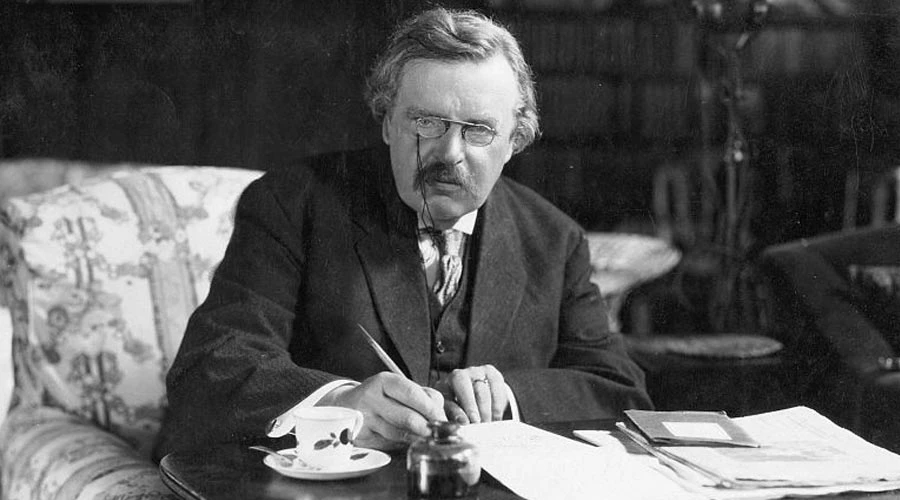Causa de beatificación de G.K. Chesterton estaría cerca de apertura
Redacción ACI Prensa

La causa de beatificación del escritor y apologista inglés Gilbert Keith Chesterton estaría cerca de su apertura ya que pronto concluirá la etapa de investigación preliminar sobre su vida.
El P. John Udris es el canónigo designado en 2013 por el Obispo de Northampton (Inglaterra), Mons. Peter John Haworth Doyle, para realizar la investigación preliminar sobre la vida de Chesterton.
Se espera que termine el trabajo entre junio y septiembre de este año. Luego, la investigación será enviada a Mons. Doyle, quien consultará con la Santa Sede la apertura de la causa de beatificación.
Al respecto, el presidente de la Sociedad Americana de Chesterton, Dale Ahlquist, dijo a CNA –agencia en inglés del Grupo ACI– que "la virtud heroica, la bondad y la humildad" del escritor inglés son la evidencia para su beatificación.
Además, durante su vida Chesterton "vio el ataque hacia la familia, a la vida misma, a la fe, pero sobre todo el ataque a la razón y al uso de un pensamiento bueno, sólido y racional. Él sabía que las personas comenzaban a liderar con sus estados de ánimo y sus emociones".
"Chesterton se erige como el santo que contradice al mundo en términos de hablar en contra de una mala filosofía y malos pensamientos", añadió.
Otro aspecto importante que compartió sobre este personaje es que "él es, de hecho, un 'creador' de conversos. Hay cientos de personas que han llegado a la fe católica como resultado del encuentro con G.K. Chesterton, y ciertamente soy uno de ellos".
Debido al continuo deterioro de la razón en la actualidad, Ahlquist señaló que el mundo necesita santos que se opongan a la cultura, y recordó lo que decía Chesterton sobre Santo Tomás de Aquino: "A veces la época se convierte por el que es más contradictorio".
"Estamos esperando y rezando para que (Mons. Doyle) tome una decisión positiva y que recomiende a la Congregación para las Causas de Los Santos que abra oficialmente la causa", expresó el presidente de la American Chesterton Society.
¿Quién fue Chesterton?
G.K. Chesterton nació el 29 de mayo de 1874 en Londres. Cuando era niño aprendía de memoria cuentos y se los recitaba. Durante su juventud se acercó al socialismo, al radicalismo y al liberalismo, pero no se conformó con "convencionalismos vacíos".
Fue periodista en el periódico "Daily News" y hasta después de su matrimonio con Frances Blogg, anglicana practicante, se declaraba ateo.
Sin embargo, su esposa lo ayudó a acercarse a Dios y él comenzó a buscarlo hasta que descubrió que "solo la Iglesia Católica puede salvar al hombre ante la destructora y humillante esclavitud de ser hijo de su tiempo".
En 1922 se convirtió al catolicismo y comenzó a profundizar en la teología. Así empezó a combatir a muchas doctrinas que revelaban la "disgregación espiritual y moral de nuestro mundo".
Chesterton escribió más de 90 libros, cientos de poemas, unos 200 cuentos e innumerables ensayos teológicos y filosóficos, artículos y obras menores. Entre sus obras destaca la saga de misterio cuyo protagonista es el P. Brown y su libro "Ortodoxia", sobre apologética.
Murió en 1936 en su casa de Beaconsfield, en Buckinghamshire (Inglaterra). Su esposa Frances y de su hija Dorothy estuvieron a su lado hasta el final.
Traducido y adaptado por María Ximena Rondón. Publicado originalmente en CNA.
















